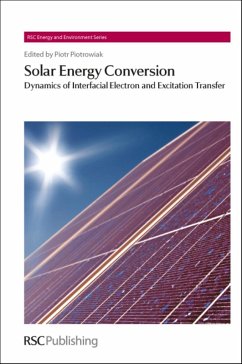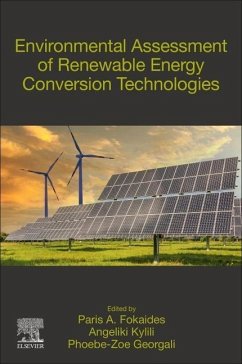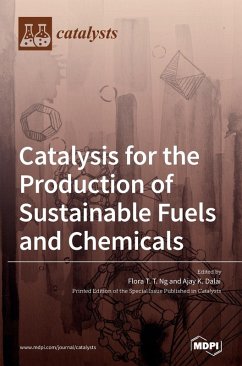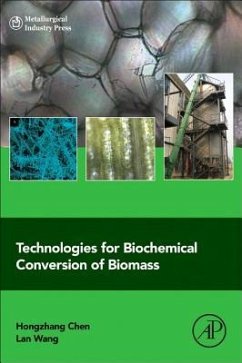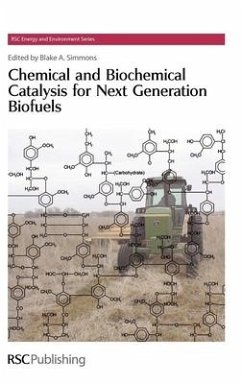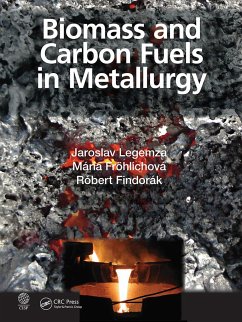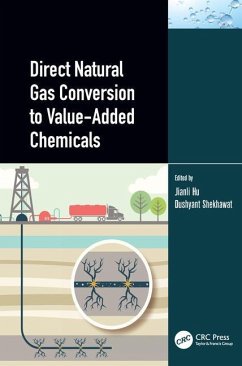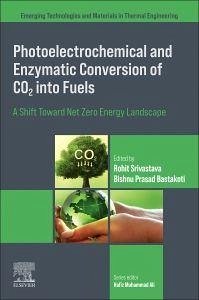
Gebundenes Buch
Biological Conversion of Biomass for Fuels and Chemicals
Explorations from Natural Utilization Systems
Herausgeber: Sun, Jianzhong; Ding, Shi-You; Peterson, Joy D
Versandkostenfrei!
Versandfertig in 2-4 Wochen

PAYBACK Punkte
107 °P sammeln!




This book covers biomass modification to facilitate the industrial degradation processing and other characteristics of feedstocks and new technologies for the conversion of lignocelluloses into biofuels and other products.
Dr Jianzhong Sun is a distinguished professor of entomology and bioenergy and is Director of the Biofuels Institute at Jiangsu University in China. He is also Adjunct Professor in the Department of Biological Systems Engineering at Washington State University in the USA. Dr Sun's research focuses mainly on the utilization of wood-feeding termites/other cellulolytic insects to develop the novel technologies for lignocellulosic biofuels and other bio-products. He initiated and chaired the first symposium on Lignocellulose Degradation by Insects and their Gut Symbionts with Potential Applications to the Biofuels Industry held at the 2008 annual conference of the Entomological Society of America in the USA. Dr Sun also edited a special issue entitled Insects and Biofuels for the Insect Science Journal in June 2010. To date, Dr Sun has published over 60 scientific papers, 4 book chapters, and a journal special issue on a variety of topics including biomass utilization, entomology, microbiology and biofuels. Dr Shi-You Ding is a plant biologist and biochemist specializing in the ultrastructure of plant cell walls and cell-wall-degrading enzymes. He has pioneered nanometer-scale studies of plant cell wall structures and the changes occurring in them during biomass conversion processes. Dr Ding currently leads several projects funded by the US Department of Energy. These are aimed at developing a deeper understanding of plant cell wall structure and processing of plant cell wall material to biofuels and bio-products. Dr Ding also has extensive experience in the biochemistry of cellulase systems including cellulosomes and fungal cellulases, as well as natural cellulolytic microbial communities. Based on the insights gained from micro- and nanoscale structure studies, he and his colleagues use molecular engineering approaches to build new chimeric enzyme proteins and to formulate mixtures of cellulases that work more efficiently to deconstruct cell-wall material and harvest its component chemicals for conversion to biofuels. Dr Ding has authored or co-authored more than 60 peer-reviewed papers and holds six US patents on thermophilic cellulases that have been licensed to industry. Dr Joy Doran-Peterson is Associate Professor of Microbiology at the University of Georgia in the USA. She is a microbiologist and bioengineering scientist. Her main research activities focus on biofuels, metabolic pathway engineering, fermentation, characterization of environmental microorganisms, and microbial ecology. Dr Peterson has published more than 30 professional papers, including book chapters, on cellulosic biofuels and the discovery of novel microbes for SSF and CBP strategies. Dr. Peterson has also pioneered cutting-edge technologies to isolate novel bacterial symbionts from cellulose-feeding insects and their application in industrial biorefinery systems for the production of lignocellulosic ethanol.
Produktdetails
- Energy and Environment Series
- Verlag: Royal Society of Chemistry
- Seitenzahl: 407
- Erscheinungstermin: 5. November 2013
- Englisch
- Abmessung: 240mm x 163mm x 29mm
- Gewicht: 786g
- ISBN-13: 9781849734240
- ISBN-10: 1849734240
- Artikelnr.: 35958457
Herstellerkennzeichnung
Libri GmbH
Europaallee 1
36244 Bad Hersfeld
gpsr@libri.de
Für dieses Produkt wurde noch keine Bewertung abgegeben. Wir würden uns sehr freuen, wenn du die erste Bewertung schreibst!
Eine Bewertung schreiben
Eine Bewertung schreiben
Andere Kunden interessierten sich für


